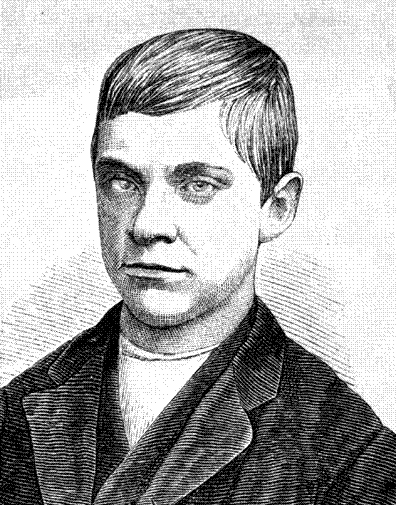When 12-year-old Jesse Pomeroy tortured seven small boys in the Boston area and then went on to brutally murder two other children, one of the most striking aspects of his case was his inability to answer the question of why he did what he did. Whether in court or in the newspapers, many experts tried to explain his horrifying acts. Despite those efforts, and attempts since, the mystery remains.
In her latest book, Making a Monster, Dawn Keetley details the story of Pomeroy’s crimes and the intense public outcry. She explores the two governing theories at the time—that he was molded psychologically before birth when his pregnant mother visited a slaughterhouse, and that he imitated brutal acts found in popular dime novels. Yet Keetley, professor and chair of English, offers a new theory—that Pomeroy suffered a devastating reaction to a smallpox vaccination which altered his brain, creating a psychopath.
“Boston was in the midst of a smallpox epidemic at the time,” she says. “The Commonwealth told everyone to have their children vaccinated, but the vaccination wasn’t all that safe. His mother took him to a public clinic, and he had a horrible reaction. His mother noted how from age one month to six months he was covered in weeping abscesses, including one over his eye, which left a permanent white cast. That must have had all kinds of effects on his personality. That’s a critical period developmentally for any child, and he was living in constant severe pain. That’s likely why it distorted his personality so much he became what we now call a psychopath. Back then, many argued that he was ‘morally insane.’”
Keetley’s book is a branch of her earlier research into the world of 19th century criminals, particularly fictional, first-person narratives of women serial killers. Other authors have recently asserted that Pomeroy was beaten as a child by his father and came to take pleasure in the torture of others. It has commonly been held that Pomeroy did to other young boys what his father did to him, but Keetley argues that there is no evidence this is the case.
“I haven’t found a shred of hard evidence that Jesse Pomeroy’s father beat him. I know that’s our favorite theory of what causes psychopathic torturers and killers—that it’s about child abuse. He could have been abused as a child, but there is no evidence to support it. He was an avid reader of dime novels from the time he was about nine years old, particularly Western dime novels, about life on the frontier. How he tortured young boys is very similar to descriptions in dime novels. There is a connection, and his reading did have an effect on his life.”
Pomeroy was the youngest person to face the death penalty in Massachusetts. He was sentenced to be excecuted, but his judgment was commuted by the governor to life in prison in solitary confinement. On September 7, 1876, just under three months shy of his 17th birthday, he was locked up in the Massachusetts State Prison, where he grew into adulthood and old age. He finally died in 1932, still in prison and still notorious.






